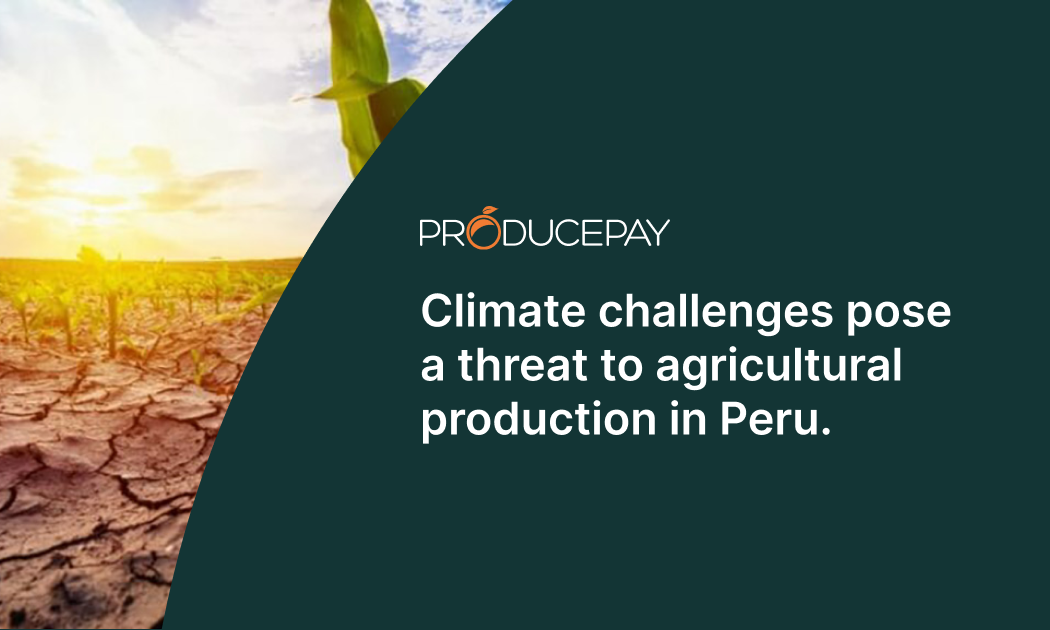
Climate challenges pose a threat to agricultural production in Peru.
A recent study by the Agricultural Producer Ombudsman has raised concerns in the Peruvian agri-food sector. The imminent threat of the El Niño phenomenon could reduce the country’s food production by up to 9.2 million tonnes, underscoring the threat this phenomenon poses to the Andean nation.
The Potential Damage of El Niño in Peru
El Niño, characterized by significant disruptions in climate patterns, looms over Peru’s coasts with the potential to devastate vast agricultural areas. According to the analysis, the coastal region would suffer the most, with a projected loss of 560,000 hectares of crops.
However, the inland areas are not safe either, as the highlands, with their 1.1 million hectares of agricultural land, would also face a substantial reduction in production capacity, potentially resulting in a decrease of 7.2 million tonnes of food.
Crops at Highest Risk
Potatoes, a cornerstone of the Peruvian diet and the backbone of the agricultural economy, would face a critical decline with a 67.1% loss in production. The drop in potato production not only affects food security but also the economic livelihood of thousands of families dependent on its cultivation.
Other essential horticultural products would also experience severe reductions in production, although official estimates are not yet available. Consequently, Peru might be forced to increase food imports to compensate for internal losses, impacting family economies. Moreover, as agro-exports decrease, incomes for farmers of high-value crops could suffer a considerable decline.
Financial Support is a Crucial Need
The study’s conclusions emphasize the need for financing for affected farmers, ensuring their ability to recover from losses and continue production. It is highlighted that the country’s dependence on its agricultural products makes climate impact a matter of national interest, with repercussions in the daily lives of every Peruvian.
Meanwhile, the scientific community suggests that adapting more resilient agricultural practices to climate change is essential. This includes adopting crop varieties tolerant to extreme conditions and implementing soil conservation techniques to reduce erosion and improve water retention.
Secure the Future of Your Production Amid Climate Uncertainty
Discover how ProducePay’s Pre-Season Financing can assist you. Invest in your season from planting to harvest today and secure the success of your agricultural business. Build resilience and ensure your livelihood amidst climate challenges!
